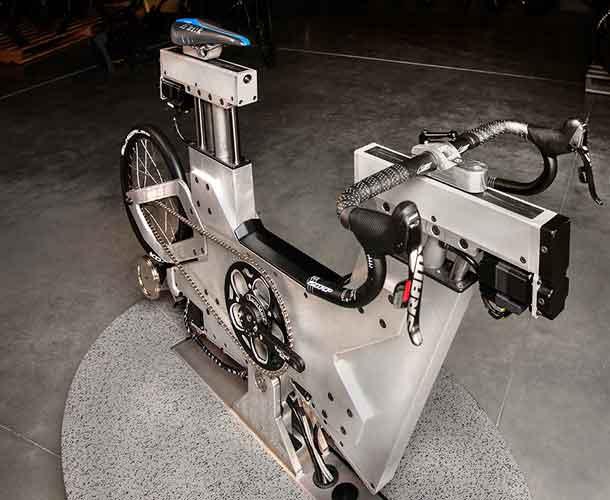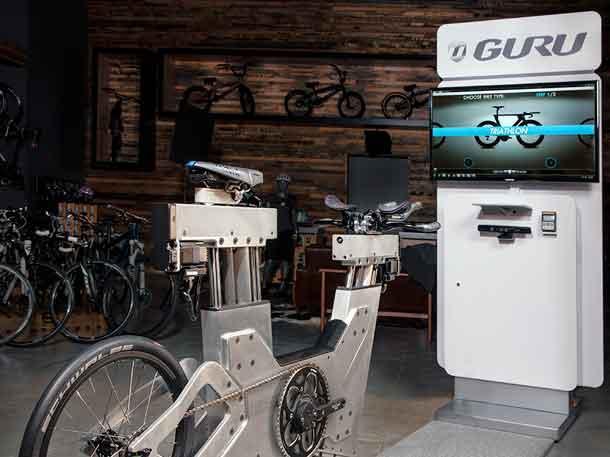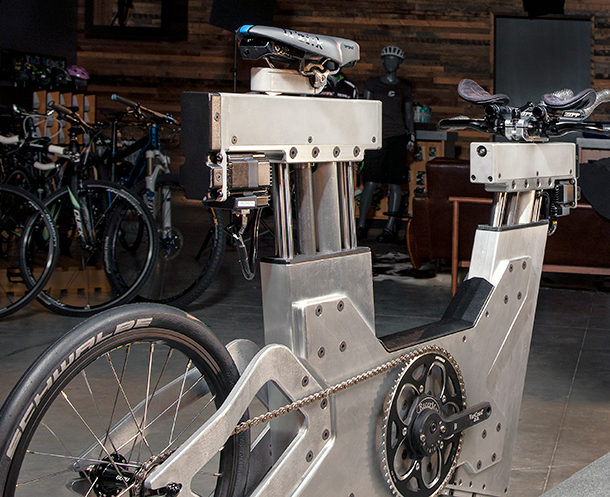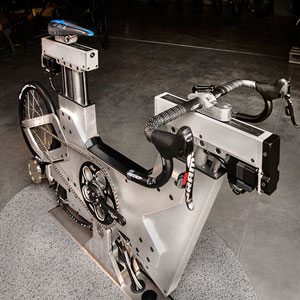Pon Buys Dorel Sports (Why? And What Does That Mean?)
The big news in the business world of cycling is that Dutch conglomerate Pon Holdings, B.V., purchased Dorel Sports, for $810 million and in a deal expected to be finalized sometime in 2022. Pon Holdings is important to readers here because it owns Cervelo Cycles. It also owns Santa Cruz Bicycles and other bike brands tangential to us.
Dorel Sports is the division of Dorel Industries, a Montreal, Canada-based seller of products for children, of home and office furniture and of… bicycles. The bicycle division is Dorel Sports. All of those disparate product categories make a kind of sense when you consider sales channels. Prior to 2008 most of Dorel Sports’ bicycles, like Schwinn and Mongoose, were sold in the mass market channel, where much of Dorel’s other products are sold. Not in independent bike shops. With the purchase of Cannondale in 2008 Dorel Sports entered the IBD (Independent Bike Dealer) world in force, which caused a lot of angst among IBDs because of the fear that this premium brand would downstream to the mass market channel.
That never happened. With today’s announcement Pon acquires, with Cannondale, another premium IBD brand to join brands like Santa Cruz and Cervelo. Of less immediate interest to us Schwinn, Mongoose and GT give Pon mass market brands like those they own for sale mostly in Europe, like Gazelle and Raleigh.

Pon’s larger business is automotive. It’s the big importer of German-made automobiles into the Netherlands (Audi and Volkswagen), as well as those from other countries, and perhaps I might detour for a moment into this, because Pon’s automotive and industrial businesses may inform on what it has in mind with some of its recent bike acquisitions. Pon has a big history in sales channels, as we see with its import of cars into the Benelux countries. It was Pon that first imported Volkswagen into the U.S. in 1949. I’m no expert on Pon, but crossing the Atlantic seems to me to have been a bridge too far – to sustain – and Pon did not have big automotive distribution ambitions in the U.S. until the end of the last century.
Pon purchased a chain of 10 luxury car dealerships in the U.S. in 2017, those dealerships selling Porsche, Bentley, Aston Martin, Jaguar, Land Rover, Audi, Maserati, and the like. Pon is obviously an expert in distribution and logistics; and it appears eager to upsize its business in the U.S.
Pon was already, of sorts, in the U.S. vehicular market when it bought those dealerships. The other such U.S. activity I know of beyond the luxury car dealerships is Equipment Depot, a chain of around 50 equipment retail and rental outlets across the U.S., selling and renting forklifts, aerial lifts and construction equipment. (Pon is heavily invested in heavy equipment, importing Caterpillar into the Netherlands).
Which may answer a question I’ve been asking myself…
Why did Pon, and not Specialized, buy the 12-store Mike’s Bikes chain in NorCal a couple of months ago? Mike’s Bikes was – reportedly – the largest buyer of Specialized bicycles in the U.S. If that chain was going to sell, why not to Specialized? We already see Trek dealers buying up Trek specialty stores across the U.S. (in the hundreds). One would think Specialized might want to emulate Trek’s strategy or, if not, at least keep Trek from buying that chain. Instead, Pon bought the chain. I couldn’t understand why at the time.
When I read today of Pon’s acquisition of Dorel Sports, I immediately thought of Mike’s Bikes, which garnered much less attention. About that retail chain, Pon released a statement upon purchase: "The acquisition of Mike's Bikes aligns with Pon's strategy to expand its retail operations in North America by acquiring premier specialty retail brands in top markets." To which I asked myself, “What retail operations?” I’m not aware of Pon buying or owning any other IBDs in North America. Not that I’m on anyone’s speed dial at Pon Bike, but, I’d have thought Pon buying IBDs was a known thing I’d have heard something.

But then I got to thinking about Pon. Not Pon Bike, but Pon Holdings. Its core business competence is import and retail. Is it fair to say Pon Bike is an outlier among Pon’s other businesses? I don’t know. I just don’t know of anything else Pon makes. Mostly, Pon sells things other brands make. It imports and retails. If this is fair, then let’s revisit that phrase that came from Pon, about that, “strategy to expand its retail operations in North America by acquiring premier specialty retail brands in top markets.” If you can’t name those specialty retailers Pon has purchased other than Mike’s Bikes, I can name about 60 of them for you. Just, they’re not IBDs. They’re car and equipment dealers (and dozens or hundreds more if you count retailers of flow control and fire suppression products). When Pon steers its 14,000-workforce-strong industrial engine in a strategic direction, what may now be the world’s largest bike company (in revenue, perhaps passing Giant Bicycles) can remake or disrupt the market in big ways.
The purchase of Mike’s Bikes by Pon was accompanied by a narrative common in such deals, such as, “Mike's Bikes will be run independently from the other Pon companies.” "Nothing is going to change around here,” said the shop’s owner reportedly said in a video call with employees. Pon products will be sold in the stores “Only if we want to. Pon doesn't force any of its companies to do business with each other … it remains entirely our decision." Okay.
Still, I’m struck by an anecdote reported in TyrePress in 2019. Pon was for years (until recently) the (automotive) Continental tire importer into the Benelux countries. It also imported VW, Audi and other brands. The article said that Pon, “converted all new cars to Continental tyres prior to delivery. It sold the demounted tyres as demo tyres via its subsidiary Summa tyres.” That’s a rather swashbuckling act of brand coherence. Imagine putting every single imported car on a hoist, taking off the OE tires, putting Conti on, and selling the OE tires in a factory liquidation.

Here is one more throwaway thought. Pon's bike business is, as of now, 70 percent electric (e-bike). Would I be surprised to see premium e-bikes on showroom floors next to Porsches? No, I would not.
I’ve reached out to Pon North America (handling mostly automotive), and Pon Bike folk at Santa Cruz Bicycles, and haven’t been able to speak to anyone yet. But I don’t see this mega bike brand purchase in a vacuum; I see it occurring through the lens of Pon’s other ambitious North American moves in car and heavy equipment. Pon’s most famous import into the U.S. was the Volkswagen. Fifty years after bringing the bug and the bus into the U.S., Pon had reestablished itself in the U.S. in a pretty robust way. When this deal closes Pon will probably be the largest bike company in the world. Pon is a master at retail. Beyond that, Pon owns the bicycle brands it sells (as opposed to most of its business in the automotive and heavy equipment sectors).
I'm really not concluding anything, or even speculating. Spitballing is more like it. If my intuition causes me to color this company in an unfair or untrue way, may I preemptively express my embarrassment now, in advance, for the embarrassment I will feel once I find out what I don’t know. And in case you wonder, the images here are of the GURU fit bike, developed by Dorel Sports, which has languished in recent years. I don't know but suspect Pon Holdings now owns this. If not, Dorel Industries has even less interest in keeping it. I do wonder what will become of it.



Start the discussion at slowtwitch.northend.network